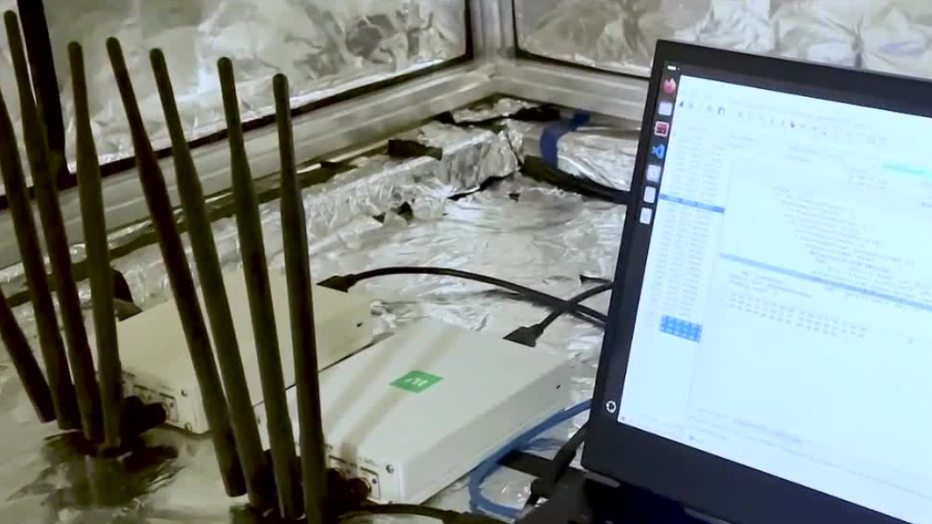University of Florida researchers create device for detecting cell phone hacking: Meet 'Marlin'

UF professor creates device to protect cellular data
FOX 35's Matt Trezza spoke with a University of Florida professor about the device he created to help protect peoples cellular data from cyber spies.
GAINESVILLE, Fla. - Researchers at the University of Florida (UF) and ETH Zurich have created a device named "Marlin" to detect nearby attempts to spy on cell phone data.
This device identifies the presence of IMSI catchers, commonly known as "Stingrays," which can hack into cell phones.
The backstory:
For nearly 30 years, vulnerabilities in cellular systems have been known, but effective detection methods have been lacking.
CLICK TO DOWNLOAD THE FOX LOCAL APP
"Stingrays" have been used by governments, law enforcement and hackers to intercept cell phone data.
Why you should care:
With the widespread use of cell phones, the risk of data theft is significant. The "Marlin" device offers a way to detect and prevent unauthorized access to personal information, enhancing privacy and security.

Researchers at the University of Florida (UF) and ETH Zurich have created a device named "Marlin" to detect nearby attempts to spy on cell phone data.
What's next:
The UF team has made the plans for building a "Marlin" device available online.
SIGN-UP FOR FOX 35'S BREAKING NEWS, DAILY NEWS NEWSLETTERS
Individuals concerned about data security can construct their own "Marlin" or use alternative methods, such as Faraday bags, to protect their cell phones from potential spying.
What they're saying:
"The idea here was that these are vulnerabilities that have been known in cellular systems for almost 30 years now, but there haven't been good ways to detect when someone is exploiting them," Patrick Traynor, a professor at UF and the school's computer science department chair, said.
"If you suddenly see a high burst of these IMSI exposing messages that you've been referring to, that's our detection mechanism," Tyler Tucker, a UF researcher, said. "If we see a very large percentage of that, all of a sudden, that's the reason for our suspicion."
Dig deeper:
For more information on how to build a "Marlin" device and protect your cell phone data, visit UF's research page.
The Source: This story was written based on information gathered by FOX 35's Reporter Matt Trezza in interviews with the research team at the University of Florida (UF).

